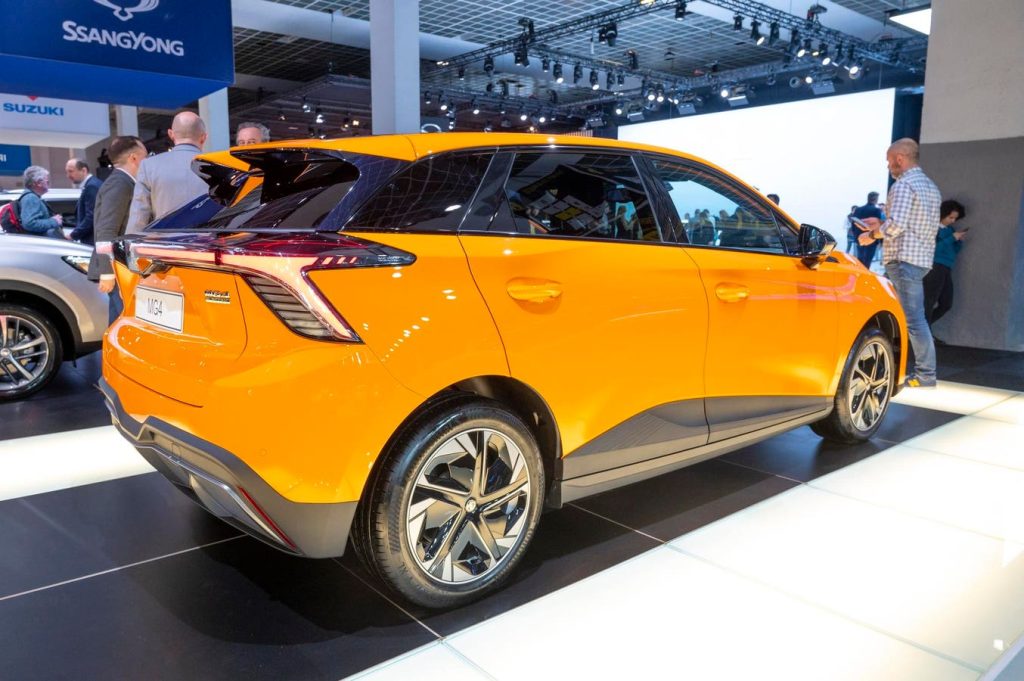European automakers and politicians nervously await news of Beijing’s possible retaliation to the European Union’s decision to impose increased tariffs on China-made electric vehicle imports.
There is also the possibility that the provisional EU action Wednesday might be vetoed by member states. Some reports suggested this was really the first round of negotiations, while analysts agreed the action by the EU won’t have much long-term impact.
Analysts said the increased costs applied to BYD (17%), Geely (20%) and SAIC’s MG (38.1%) over the current 10% tariff won’t do much damage, given the companies proven ability to absorb extra overheads because of impressive efficiency.
“We don’t expect list prices to be impacted significantly with the likes of BYD and MG forced to soak up the tariffs into their inflated European profit margins,” said Matt Schmidt of Schmidt Automotive Research in a LinedIn message.
Schmidt also pointed out that the tariffs need to be approved by a majority of EU member states.
Schmidt said after factoring in the tariff rise, his forecast for Chinese manufacturers’ share of the Western Europe EV market will peak at just under 12% in 2030, compared with just below 10% currently.
According to the Financial Times, German Chancellor Olaf Scholz has described the tariff action as something that “ultimately just makes everything more expensive, and everyone poorer”.
Volkswagen, BMW and Mercedes have declared their support for free trade. The German auto manufacturers association, the VDA, fears a trade war.
If the tariffs are approved, many Chinese automakers will decide to set up shop in Europe. BYD has already begun building a plant in Hungary. Stellantis has already started assembling Leapmotor vehicles in a Polish plant. Chery has agreed to produce EVs in Spain. This prospect seems to please all sides.
But the idea that all will be well might be complacent. After all, China’s initial reaction was hardly sanguine.
China denounced the planned tariffs as “blatant protectionism” that lacked a “factual and legal basis”. But later reports from China suggested a less harsh reaction might lead to compromises.
Investment bank UBS said if the tariff decision is finalized the European EV market might be left to the bigger Chinese operators. Global markets tend to be higher-margin than domestic, so there is scope to offset the tariffs. Leading Chinese manufacturers will accelerate local assembly.
“Leading Chinese players would still have a 25% cost advantage over EU legacy (manufacturers) even after localizing assembly of the car in eastern Europe. Therefore, we see very limited, if any, benefit for EU mass players like Stellantis, Renault and Volkswagen from the tariffs as the European high-volume segment would remain highly competitive with subdued margins,” UBS said in a report.
For premium manufacturers, there would be no impact in Europe, although the threat of 25% tariffs on their internal combustion engine products entering China would hit Porsche the hardest because it imports all its products.
Investment researcher Jefferies didn’t see much of an impact in Europe either.
“The magnitude of the tariff hike is in line with expectations, and in our view, will not hinder most, if not all, China EV makers from making inroads in Europe,” Jefferies said in a report.
Jefferies said the price of China’s EVs in the EU were in general 80% to 100% higher than the same vehicles sold in the domestic market.
Read the full article here

